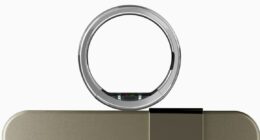Share this @internewscast.com
Many people believe their bathroom is clean as long as it looks spotless and smells fresh, often storing everyday items out in the open without a second thought. But a bathroom expert is warning that this common habit could be exposing your family to a hidden health risk.
Peter Jones, Director of ADI Leak Detection, shared: “People are often shocked when I tell them about the risks hiding in plain sight in their bathrooms.” In a warm, humid environment, bathrooms become breeding grounds for bacteria, especially from flying particles from the toilet, leading to avoidable health issues. And the key item causing the biggest risk of contamination? Your toothbrush.
What’s the risk?
Peter explained: “When you flush, you’re essentially creating a bacterial aerosol that spreads throughout your bathroom. These droplets often contain E. coli, Salmonella, and other harmful bacteria that can linger in the air for hours.”
Research shows that flushing can launch bacteria-laden droplets up to six feet in distance and several feet into the air. Jones continued: “Most people don’t realise how far these particles can travel.
“I’ve seen bathrooms where the toothbrush holder is less than three feet from the toilet. That’s well within the contamination zone.”
UK homes commonly have small bathrooms with limited space, so it is almost impossible to keep personal care items completely out of range.
Where to store toothbrushes
“The simplest solution is to store toothbrushes in a closed medicine cabinet or drawer, away from the toilet area,” the expert advises. He also suggests that families who share a bathroom should use individual toothbrush covers or a closed container.
However, if you are using a cover, homeowners need to make sure brushes dry properly before storing away.
Other bathroom items at risk
Peter also warned that other bathroom items are at risk of contamination. He explained, “Face towels hanging near the toilet, contact lens cases left on the counter, and open skincare jars are all at risk.
“Anything porous or with an opening can become contaminated.”












